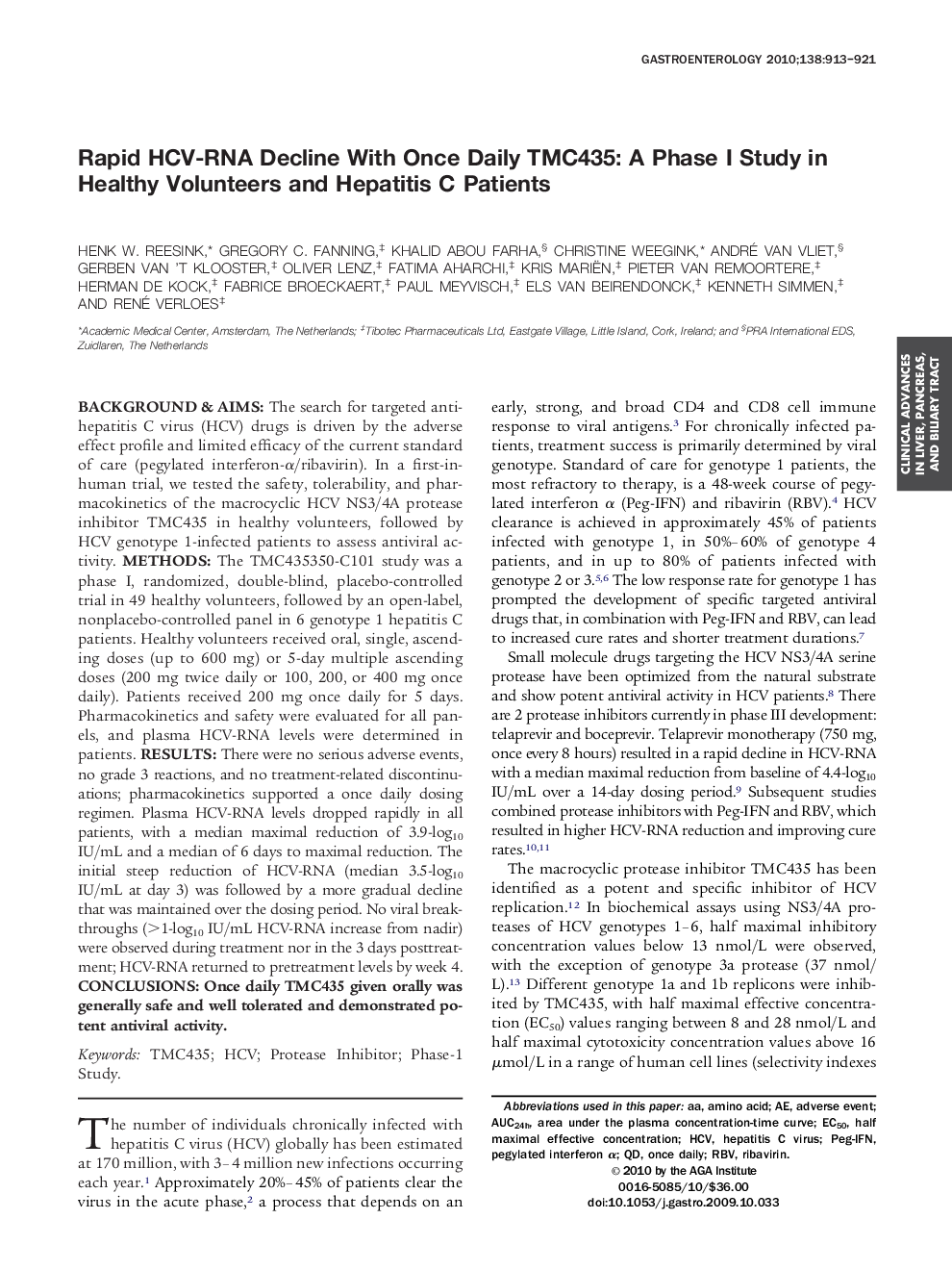| Article ID | Journal | Published Year | Pages | File Type |
|---|---|---|---|---|
| 3294471 | Gastroenterology | 2010 | 9 Pages |
Background & AimsThe search for targeted anti-hepatitis C virus (HCV) drugs is driven by the adverse effect profile and limited efficacy of the current standard of care (pegylated interferon-α/ribavirin). In a first-in-human trial, we tested the safety, tolerability, and pharmacokinetics of the macrocyclic HCV NS3/4A protease inhibitor TMC435 in healthy volunteers, followed by HCV genotype 1-infected patients to assess antiviral activity.MethodsThe TMC435350-C101 study was a phase I, randomized, double-blind, placebo-controlled trial in 49 healthy volunteers, followed by an open-label, nonplacebo-controlled panel in 6 genotype 1 hepatitis C patients. Healthy volunteers received oral, single, ascending doses (up to 600 mg) or 5-day multiple ascending doses (200 mg twice daily or 100, 200, or 400 mg once daily). Patients received 200 mg once daily for 5 days. Pharmacokinetics and safety were evaluated for all panels, and plasma HCV-RNA levels were determined in patients.ResultsThere were no serious adverse events, no grade 3 reactions, and no treatment-related discontinuations; pharmacokinetics supported a once daily dosing regimen. Plasma HCV-RNA levels dropped rapidly in all patients, with a median maximal reduction of 3.9-log10 IU/mL and a median of 6 days to maximal reduction. The initial steep reduction of HCV-RNA (median 3.5-log10 IU/mL at day 3) was followed by a more gradual decline that was maintained over the dosing period. No viral breakthroughs (>1-log10 IU/mL HCV-RNA increase from nadir) were observed during treatment nor in the 3 days posttreatment; HCV-RNA returned to pretreatment levels by week 4.ConclusionsOnce daily TMC435 given orally was generally safe and well tolerated and demonstrated potent antiviral activity.
